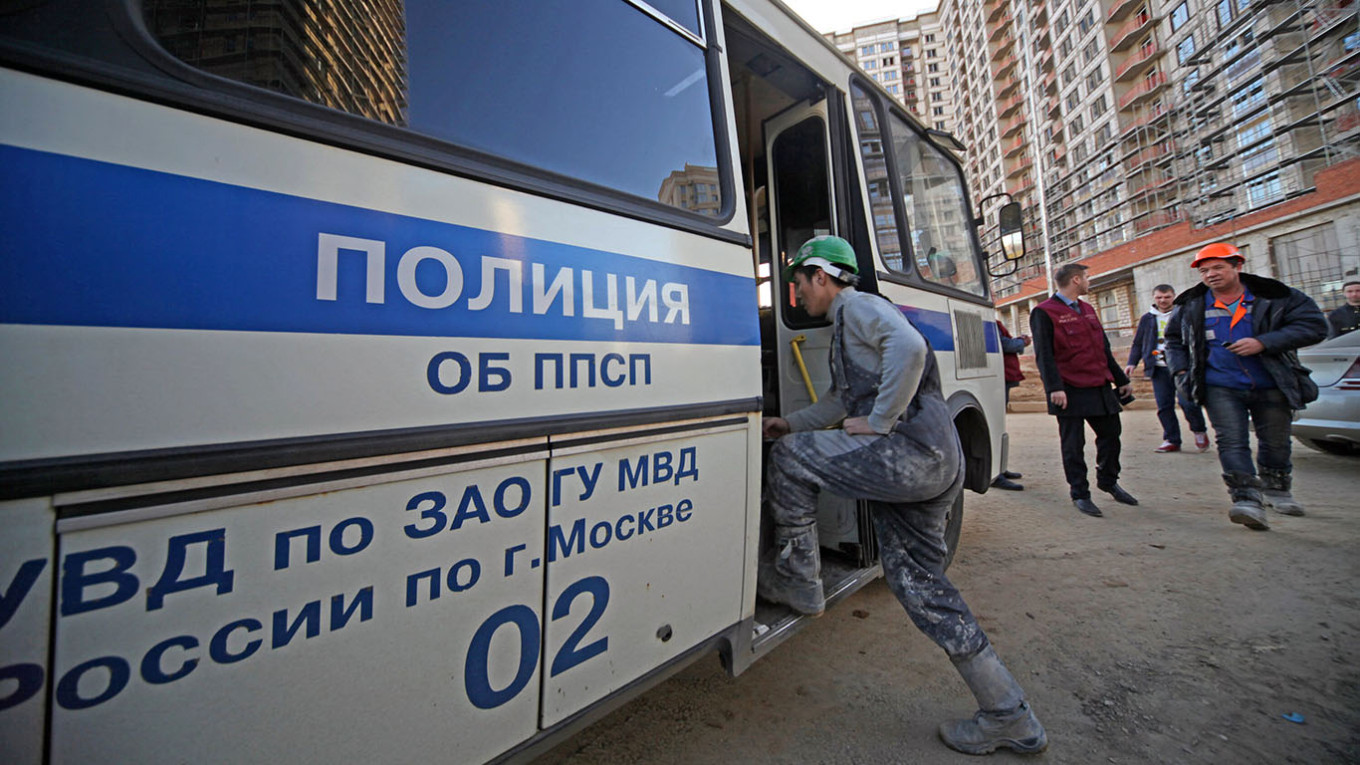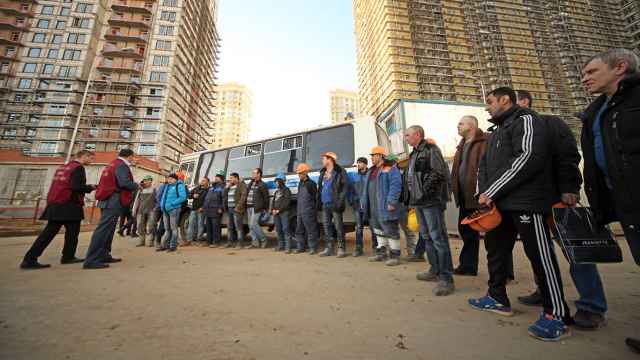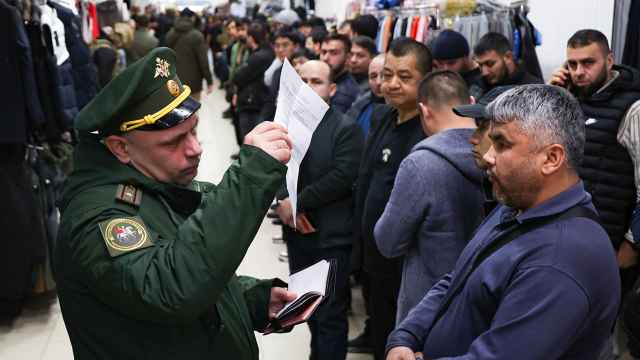A new set of migration laws came into effect in Russia on Wednesday that will make it easier for authorities to expel migrants with impunity.
The latest legal changes are aimed at further streamlining the procedure of deporting “illegal” migrants, according to State Duma Speaker Vyacheslav Volodin. But activists warn that they could be used to indiscriminately target migrants, particularly those from Central Asia.
“[This law] is very dangerous,” a migrant rights activist from Tajikistan told The Moscow Times on condition of anonymity for safety reasons. “It means that any policeman can take you and expel you…even if you have evidence of violations on the part of the officer.”
Though Russia’s labor-starved economy relies on approximately 10.5 million migrant workers hailing primarily from Central Asia, ethno-national and racial prejudices remain persistent across the country. Russian officials, too, have long stopped shying away from making anti-migrant statements to remain in step with the public mood.
Last year’s deadly terrorist attack on the Crocus City Hall concert venue outside Moscow and the subsequent arrest of Tajik nationals suspected of carrying out the attack brought this xenophobia to a fever pitch, with sweeping police raids on migrant communities across the country that saw tens of thousands of migrants detained.
Russia forcefully deported more than 80,000 foreigners in 2024 — nearly double the previous year’s rate — according to Federal Bailiff Service statistics cited by the state-run TASS news agency.
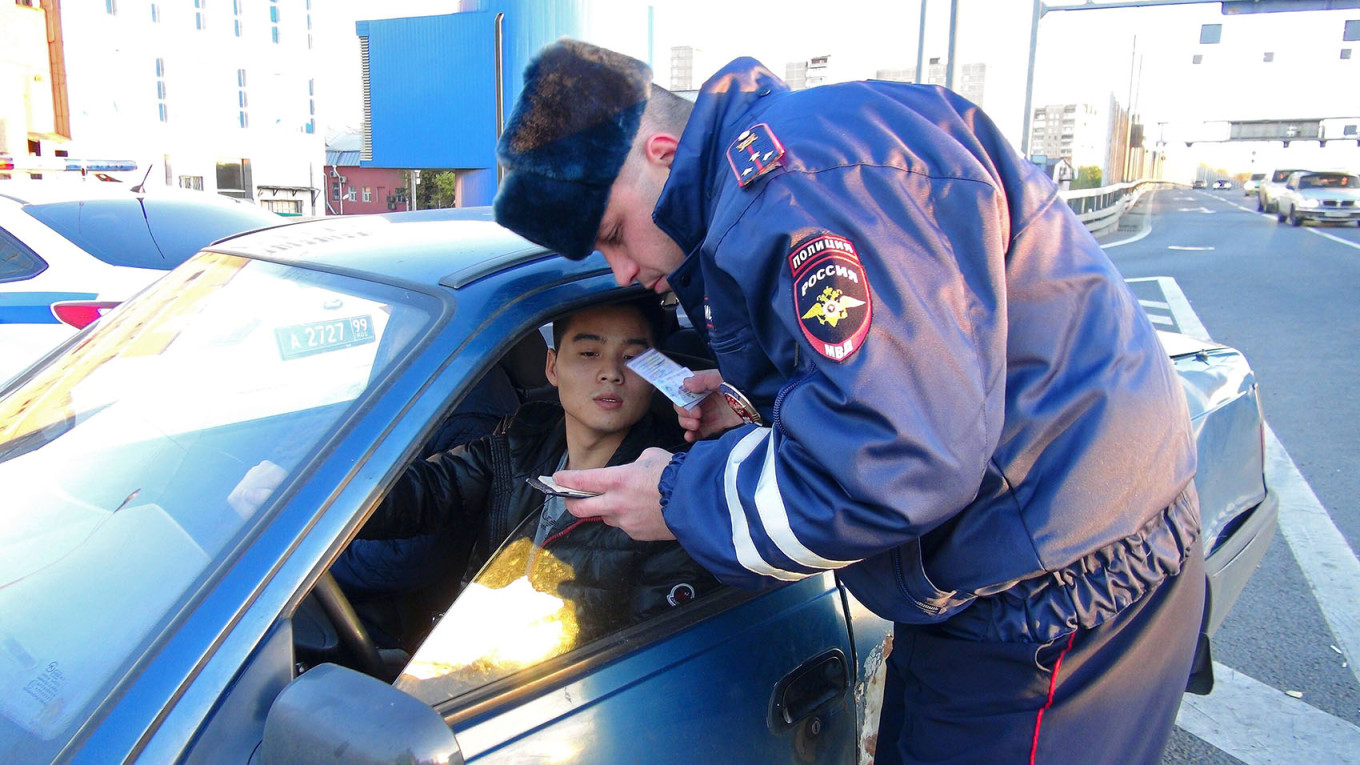
Previously, a court had to sign off on all deportations, triggering a forceful removal process that could take up to 90 days, during which the migrant would be held in a detention center.
Under the new migration law, “they want to deport a person within 48 hours, which is unrealistic,” the activist from Tajikistan said. “We know that it can take up to six months for people to get a document confirming their citizenship of a particular country.”
The new law also grants Russian police the authority to add a migrant worker’s name to the so-called “controlled persons registry” listing potential deportees.
Persons placed on the registry are barred from driving, marrying and traveling within Russia, as well as opening a bank account or spending more than 30,000 rubles ($351) per month — effectively a ban on sending remittances to their home countries.
“Even if they have all their documents, but some police officer or official made such a decision, the [migrant] cannot work,” the activist said. “The new deportation regime will lead to the police making money off of this — bribes.”
In July 2024, Russia’s Interior Ministry also proposed doubling the list of offenses punishable by deportation.
New offenses would include disobeying a police officer, taking part in a mass gathering and petty hooliganism — the latter of which, according to immigration lawyer Valentina Chupik, is the charge used to hold 80% of detained migrants.
People queuing outside migration centers will be particularly vulnerable to these charges, according to Chupik.
“The crowds there are unbelievable…not because people like to gather in crowds, but because only two out of 20 tills are open,” she told The Moscow Times. “All these people could be deported at any moment. And that, unfortunately, would be legal.”
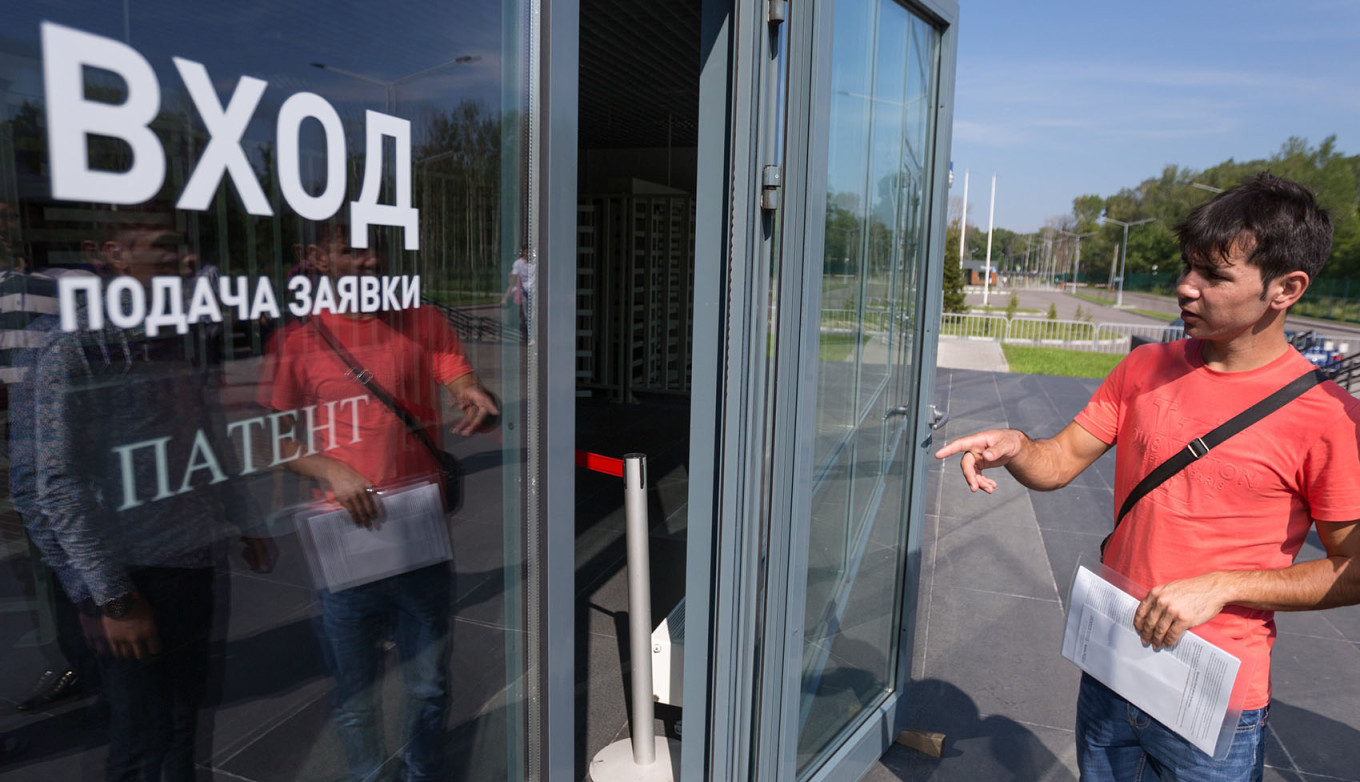
The Russian economy has a dire need of working-age men. A study by the Russian Academy of Science Institute of Economics last year revealed a deficit of 4.8 million laborers — a deficiency that migrant workers could make up for.
But the Russian government has also increasingly banked on migrants to make up for its military manpower shortages in Ukraine.
At least 10,000 naturalized migrant workers have been sent to “dig trenches and build fortifications” on the frontlines in Ukraine, Russian Investigative Committee head Alexander Bastrykin said in June 2024.
“From a practical standpoint, [the Russian government] isn’t interested in deporting all of the migrants, they need them,” Kyrgyz human rights lawyer Leila Nazgül Seiitbek said. “They need some kind of motivation to intimidate them into joining the armed forces.”
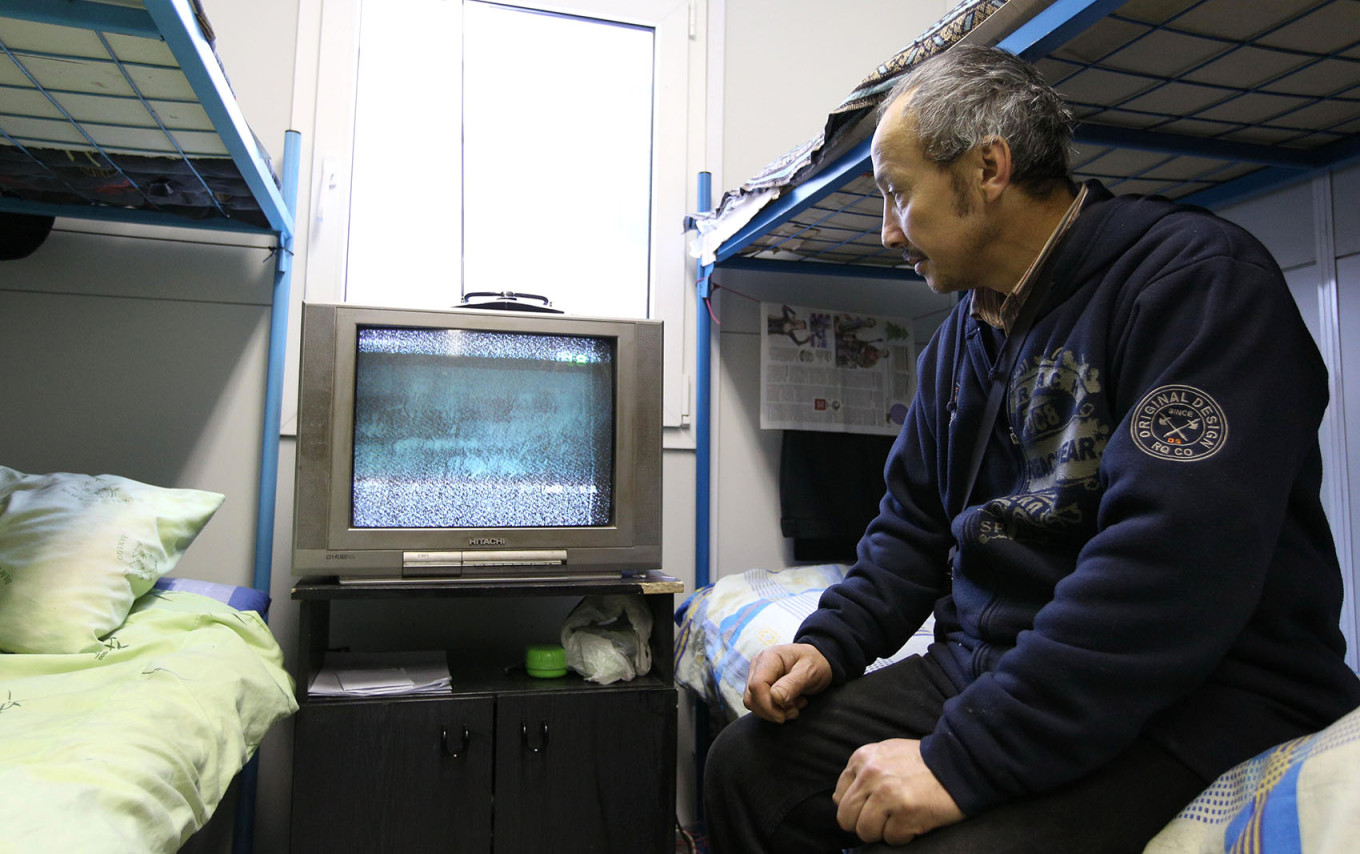
As treatment of Central Asians in the country worsens, lawyer Chupik predicted that increasing numbers of “law-abiding migrants will start leaving Russia.”
Even though migrants have many more opportunities to earn money in Russia than in their home countries, few “are ready to comply with all the requirements put forward for the sake of average earnings in the Russian market,” Tajik journalist Mirzo Salimpur told the independent Novaya Gazeta Europe news website.
But with remittances comprising a large part of Central Asian states’ GDPs — with 51% of Tajikistan’s GDP coming from remittances alone — disruptions of this inflow could batter economies in the region.
“What will happen in Tajikistan if 800,000 people return within a couple of months? It would be chaos — no jobs, no food,” Chupik warned.
A Message from The Moscow Times:
Dear readers,
We are facing unprecedented challenges. Russia's Prosecutor General's Office has designated The Moscow Times as an "undesirable" organization, criminalizing our work and putting our staff at risk of prosecution. This follows our earlier unjust labeling as a "foreign agent."
These actions are direct attempts to silence independent journalism in Russia. The authorities claim our work "discredits the decisions of the Russian leadership." We see things differently: we strive to provide accurate, unbiased reporting on Russia.
We, the journalists of The Moscow Times, refuse to be silenced. But to continue our work, we need your help.
Your support, no matter how small, makes a world of difference. If you can, please support us monthly starting from just $2. It's quick to set up, and every contribution makes a significant impact.
By supporting The Moscow Times, you're defending open, independent journalism in the face of repression. Thank you for standing with us.
Remind me later.


